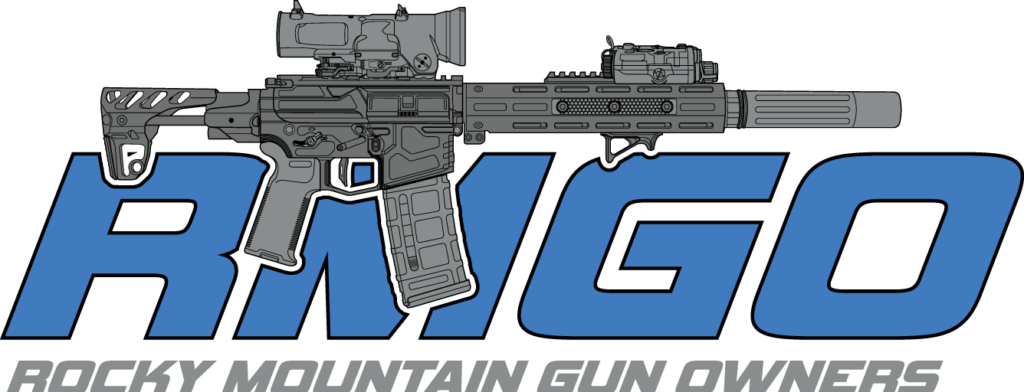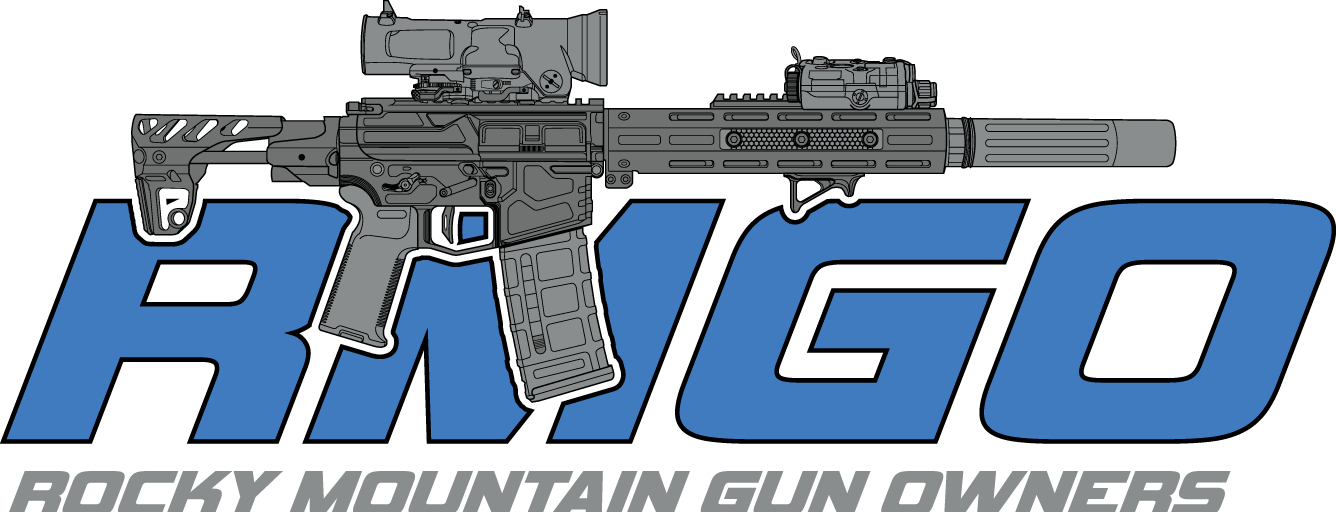Firearms Legal Questions Answered Involved
Concealed Carry FAQs
Take a Concealed Carry Class through RMGO
Reciprocity Map (states that honor CO CCW permits)
Official CBI Website
How to fight back against Merchants who post “No Firearms” signs
This guide is intended to direct you through the process to acquire a concealed carry permit in Colorado. If you have trouble in the process, please call our office.
In Colorado, as in most other states, a permit to carry a concealed handgun must be issued to anyone who requests one, and who meets certain objective criteria. This is sometimes called “shall issue.” Before the law was changed in 2003, issuing a permit to carry a concealed weapon was at the discretion of the police chief or sheriff you applied to. The old system was sometimes called “may issue.”
In Colorado permits to carry a concealed handgun are issued by the sheriff of each county.
Step 1
Under current law, if you meet the following criteria, you must be issued a permit:
- Are at least 21 years of age (or age 18 for an emergency permit);
- Are a resident of Colorado, or own real estate or a business in Colorado, including a person in the armed forces stationed in Colorado;
- Are able to lawfully possess a firearm under Colorado and Federal law;
- Are not convicted of perjury;
- Do not chronically and habitually use alcoholic beverages to the extent that your normal faculties are impaired;
- Are not an unlawful user of or addicted to a controlled substance as defined in Colorado and Federal law, including marijuana.
- Are not subject to a temporary protection/restraining order that is currently in effect, or subject to a permanent protection order.
Assuming you meet all these criteria, you can proceed with the process. If you do not meet all these criteria, you either need to get the problem corrected, if possible, or else not bother.
Step 2
While RMGO opposed it, current law in Colorado also requires that in order to obtain a concealed handgun permit you also have to show proof of competence with a handgun. You can do this through any one of the following methods:
- Evidence of experience with a firearm through participation in organized shooting competitions or current military service;
- Evidence that, at the time the application is submitted, the applicant is a certified instructor;
- Proof of honorable discharge from a branch of the United States armed forces within the three years preceding submittal of the application;
- Proof of honorable discharge from a branch of the United States armed forces that reflects pistol qualifications obtained within the ten years preceding submittal of the application;
- A certificate showing retirement from a Colorado law enforcement agency that reflects pistol qualifications obtained within the ten years preceding submittal of the application; or
- A training certificate from a handgun training class obtained within the ten years preceding submittal of the application. The applicant shall submit the original training certificate or a photocopy thereof that includes the original signature of the class instructor. The applicant shall have discretion in selecting which handgun training class to complete. “Handgun training class” means: A law enforcement training firearms safety course; or a firearms safety course offered by a law enforcement agency, an institution of higher education, or a public or private institution or organization or firearms training school, that is open to the general public and is taught by a certified instructor; or a firearms safety course or class that is offered and taught by a certified instructor. “Handgun training class” does not include any firearms safety course that allows a person to complete the entire course via the internet or an electronic device; or in any location other than the physical location where the certified instructor offers the course.
RMGO offers a training class that meets the requirements of Colorado law, should an applicant need one. Basically it is 4 hours of in-person, classroom type instruction. There is no examination or testing required. If you attend the class you receive a certificate of attendance, which is what is required by Colorado law. You do not have to already own a handgun to take the class, and you do not have to already have any firearms knowledge. The class covers how handguns work, how to carry a handgun safely, how to use a handgun safely, and the legal aspects of using a handgun to protect yourself or others.
Off and on some sheriffs in Colorado have tried to add requirements to the proof of competence with a handgun, such as requiring training that includes live fire or marksmanship. Live fire is not required by Colorado law, and sheriffs may not add their own requirements to state law. At this time so far as RMGO is aware, all Colorado sheriffs have stopped adding requirements to the training component beyond those in state law. However, if you run into a problem, please let us know and we will work to resolve it.
Step 3
Once you are all set with your proof of competence with a handgun, whether a training class or otherwise, you can proceed to complete and submit the application form. There is a form developed by the County Sheriffs of Colorado that, so far as RMGO knows, all sheriffs are currently using. You can see a sample here: https://www.denvergov.org/files/assets/public/police-department/documents/concealed-weapons/concealed_handgun_permit_application.pdf
Go ahead and complete the form, but do not sign it yet. You submit the application in person to the sheriff’s office of the county in which you live, or if you are an out of state resident with a business in Colorado, in the county where the business is located. In the case of people who reside or have a business in Denver or Broomfield, the application is done through the police departments.
It is best to check with your sheriff on how to submit the application. Some will take it during regular business hours, some set a more limited time window. In all counties you have to bring the completed application to the sheriff’s office in person, together with your proof of handgun competence, and your Colorado drivers license or other government issued identification. You will also need to bring some money. The maximum fee that can be charged currently is a total of $152.50. A sheriff can charge less than the maximum fee, and while most do not charge less, a few do. Some sheriffs want the money in the form of a money order, others will take cash or check.
In the past some sheriffs have played games with only accepting applications for very narrow time windows, in effect delaying the process. So far as RMGO knows that practice has ended, because we squash it every time we learn about it. However if you run into difficulty getting the sheriff to accept a permit application in a reasonable timeframe please let us know so we can address it.
When you visit the sheriff’s office they will have you swear your answers on the application are true, then have you sign the application in front of the clerk or deputy. They will fingerprint you and take your picture for the license. They will collect the fee from you.
Step 4
The sheriff has 90 days to act on the application. Of course they do not have to wait 90 days, but they can. Some will work on it more quickly, others take the full time. The sheriff will submit the fingerprints to the Colorado Bureau of Investigation for a background check. Assuming there are no issues, the sheriff will generate a permit, it’s a card similar to a drivers license and either mail it to you, or notify you it is ready for you to pick up at the sheriffs office.
Step 5
The permit is good for five years. If you move out of the county where you obtained it, you must notify the sheriff that issued your permit of your new address. You must make this notification within 30 days of your move. Your permit continues to be valid. Within 120 days of the permit expiring you can apply for a renewed one. If you have moved to a new county, you apply for a renewal with the sheriff of the county you currently live in, not the one that issued the initial permit. You do not have to submit proof of handgun competence when renewing your permit. The fee for a renewal is currently a maximum of $63.00.
Using Your Permit
You must carry the permit and your drivers license or similar government issued photo identification when you are carrying a concealed handgun.
The permit is only good for carrying one or more handguns; it is not good for carrying any other type of firearm or weapon. You may be able to carry other types of weapons; however state law will control that. Before the law was completely rewritten in 2003 a Colorado concealed carry permit also covered knives. The current permit does not.
In Colorado you are not obligated to notify police that you are carrying a handgun if you are stopped or otherwise contacted by police.
Your permit is valid for carrying a concealed handgun anywhere in the state except public elementary, middle and high schools, places where firearms are prohibited by Federal law and government facilities with security screening at each entrance where everyone entering the facility is screened and prohibited from carrying firearms into the facility. Private property owners may prohibit firearms if they wish, and ignoring such a prohibition while knowing it exists can theoretically result in a trespassing charge. Colorado courts also take the position that as a co-equal branch of government, they are not covered by laws enacted by the Legislature, and therefore set their own rules for firearms in court. Most judicial districts prohibit members of the public from carrying any weapons in the courthouse.
RMGO’s Position
NAGR and RMGO oppose requiring a permit to carry a firearm, open or concealed. In 2003 when the bill that became the current law was working its way through the Colorado legislature, it was opposed by RMGO. There were several reasons for this:
This law requires training, something that should not be required for exercise of a constitutional right.
Open carry requires no training, or permit in Colorado. How is concealed carry so different?
The permit under this law is expensive.
This permit is not good at public schools. Gun free zones are ignored by criminals. The prior “may issue” law allowed carry at schools. Colorado schoolyards did not run with the blood of innocent children before 2003. The then governor of Colorado, Republican Bill Owens, insisted carry be barred at public schools in order to sign a “shall issue” law. Colorado’s Republican legislature chose to bow to Gov. Owens’ whim over their constituents, and passed a law that barred concealed carry at public elementary, middle and high schools. Carry at private schools is fine under Colorado law; no blood drenched areas there either.
The initial law enacted in 2003 allowed sheriffs to report the fact that someone had a concealed handgun permit to the state crime database, creating a database of gun owners, in effect. Incomplete perhaps, but a database nonetheless. RMGO was able to get this practice prohibited in later legislation.
The permit process is slow. Colorado will let you buy a gun with a background check typically completed in less than a week, and often within the same day. While RMGO does not agree with that process either, why can approval to buy a gun be given in a week or less when the check for a permit takes 90 days?
RMGO and its parent group NAGR work for and advocate permitless carry, sometimes called “Vermont carry” or “constitutional carry.” Under this law, carry is allowed in any manner a person sees fit, open or concealed, without any advance government permission needed. If you can legally own the gun, you can carry it. No permit, no fees, no mandatory training. RMGO does believe in and does advocate for training. Every gun owner should know how to use their firearm in a safe and effective manner. RMGO strongly disagrees with government mandated training.




